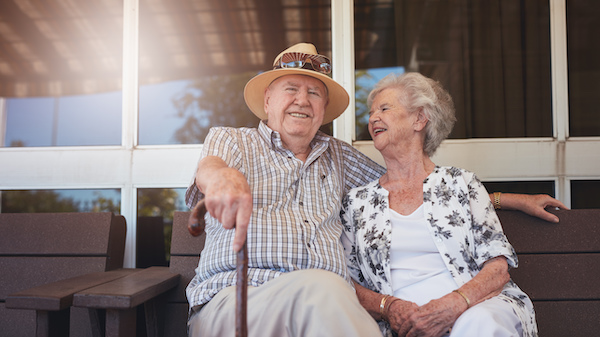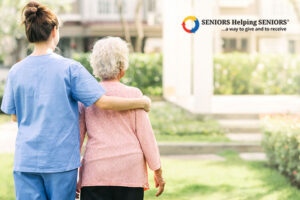Top Tips for Preventing Heat Stroke in Seniors

Every year, heat-related conditions claim hundreds of lives. Seniors prove particularly vulnerable to conditions like heat stress, heat exhaustion, and heat stroke.
As the summer months approach, now is the time to prepare for dealing with the heat. Keep reading for tips to avoid heat stroke in elderly people.
What Is Heat Stroke?
A heat stroke is when a patient’s temperature rises to 105 F, which can result in nausea, fever, confusion, and loss of consciousness.
Victims of heat stroke may also experience headache, dizziness, lack of sweating, muscle cramps, rapid heart rate, and fainting.
Below are some ways to prevent heat stroke during the hot summer months. If you suspect heat stroke is already occurring, it’s important to call 911 immediately.
Hydrate
Staying hydrated is one of the simplest ways to prevent heat stroke among seniors. As the common saying goes: “If you’re feeling thirsty, it’s a sign that you’re already dehydrated!”
While the recommended eight glasses a day gives you something to aim for, drink more water as temperatures increase.
Yes, you’ll likely sweat more. That’s a good thing, though, since sweating is one of the ways the body helps you regulate your temperature.
Protect Your Skin
Direct contact with the sun can speed up the process of dehydration and result in heat stroke.
First and foremost, always wear a high SPF sunscreen when you go outdoors. This will help protect your skin from the sun’s harmful UV rays.
In addition, avoid direct contact with the sun while you’re outdoors by sitting in the shade, when possible. Wear garments that cover your skin, such as hats, long-sleeve shirts, and pants or long skirts. Just make sure the clothes you choose are flowy or breathable so that you don’t get too warm!
A/C Maintenance
Air conditioners stand as one of the main barriers between the elderly and heat stroke in hot locations. Keeping the filter clean offers one simple thing that can be done to keep the A/C running smoothly. Get your A/C unit checked over by a pro in the spring to avoid a nasty surprise when the heat really settles in later in the summer.
Check Your Medications
Discuss any medications you take with your doctor and ask about potential interactions they may have with sunlight or heat. Some medications can interfere with the body’s normal heat regulation processes. Knowing this information ahead of time can let you prepare a basic strategy for dealing with the heat.
Prepare a Plan for Emergencies
Some seniors become increasingly housebound by their condition or by choice. If an emergency happens, such as the electricity going out, they may not leave their house to look for a cooler location.
Work on a plan with friends and family members that details places you can go or people you can call in these kinds of emergencies. A few places that normally provide air conditioning include coffee shops, senior centers, libraries, or grocery stores.
Knowing where to go if it gets too hot can help you avoid heat stroke.
Enlist Help
If you worry that your parent or grandparent needs extra help to avoid heat stroke, you can always enlist help. You can hire a private nurse or look for services that connect seniors with other seniors for basic care and companionship.
Having someone that checks in regularly can help provide peace of mind, especially on those hot summer days.
Avoiding Heat Stroke in Elderly People
The goal with heat stroke is to be proactive, rather than reactive.
Get in the habit of drinking enough water. Keep your A/C unit in good working order. Make a plan for getting somewhere cool in case of an emergency, like a power outage.
Know a senior who needs extra assistance? Enlist help from a private nurse or a service that connects seniors with caregivers.
Seniors Helping Seniors helps connect able-bodied seniors with seniors who need extra care in the San Diego and Orange County area. For more information or to get started, contact Seniors Helping Seniors today.






